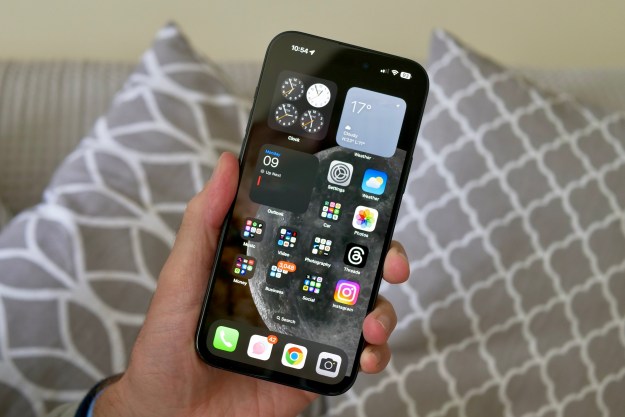Samsung has been sitting pretty at the top of the global smartphone market for more than a decade. Until now, that is.
Data released this week by research firm IDC shows that the Korean tech giant has been knocked off its perch by archrival Apple thanks in part to robust sales of the iPhone.
“The last time a company not named Samsung was at the top of the smartphone market was 2010, and for 2023 it is now Apple,” IDC said in its latest report, which looked at global shipments of smartphones over the last 12 months.
IDC’s preliminary results for 2023, which could be adjusted slightly, estimate that Apple achieved 234.6 million phone shipments last year, up 3.7% on a year earlier and giving it a 20.1% market share. Samsung, on the other hand, saw 226.6 million shipments, equal to a 19.4% share and down by 13.6% from the previous year.
The same data for 2022 saw Samsung in the number one spot with 262.2 million phone shipments (21.7%) compared to Apple’s 226.3 million (18.8%).
Driving Apple’s smartphone sales in 2023 will have been the iPhone 14 models, as well as the newer iPhone 15 handsets, which launched in September, while Samsung has been impacted by competitors bringing a slew of new Android phones to multiple markets around the world.
Trailing Apple and Samsung in global smartphone shipments for 2023 were Chinese tech firm Xiaomi, with 145.9 million (12.5%) units, and OPPO, also based in China, with 103.1 million (8.8%) units. In the fifth spot is Chinese company Transsion — big in African markets with various branded phones — with 94.9 million shipments in 2023, equal to 8.1% of the market.

IDC said that overall, the global smartphone market remains challenged but added that the “momentum is moving quickly toward recovery.”
The research firm’s preliminary data suggested that global smartphone shipments declined 3.2% year-over-year to 1.17 billion units in 2023.
“While we saw some strong growth from low-end Android players like Transsion and Xiaomi in the second half of 2023, stemming from rapid growth in emerging markets, the biggest winner is clearly Apple,” said Nabila Popal, research director with IDC’s Worldwide Tracker team. “Not only is Apple the only player in the top three to show positive growth annually, but it also bags the number one spot annually for the first time ever.”
Popal added that Apple’s success is in large part “due to the increasing trend of premium devices, which now represent over 20% of the market, fueled by aggressive trade-in offers and interest-free financing plans.”
Another IDC executive, Ryan Reith, said that while Apple clearly played a part in Samsung’s drop in rank, “the overall Android space is diversifying within itself. Huawei is back and making inroads quickly within China [and] brands like OnePlus, Honor, Google, and others are launching very competitive devices in the lower price range of the high end,” adding that “overall, the smartphone space is headed towards a very interesting time.”
Samsung is about to unveil the latest iteration of its flagship Galaxy S24 handset, a device it hopes will help it snatch the crown back from Apple.
Editors' Recommendations
- An Apple insider just revealed how iOS 18’s AI features will work
- The most common Skype problems and how to fix them
- There’s a big problem with the iPhone’s Photos app
- When will Apple release iOS 18? Here’s what we know
- This is our best look yet at the iPhone 16’s big design changes


